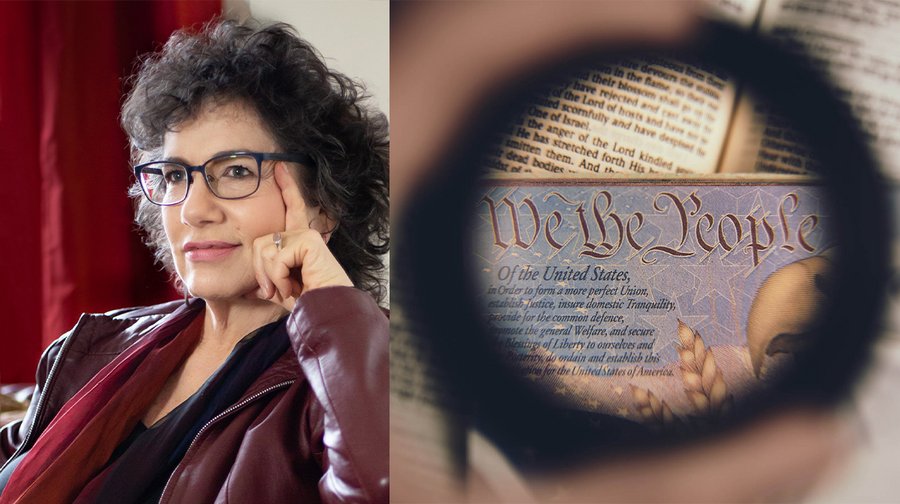Philosopher and director of the Einstein Forum considers how culture influences how we view politics – and how politics influences how we value culture
Albert Einstein once said: “Curiosity has its own reason for existing.” Susan Neiman, an American moral philosopher, cultural commentator, essayist, and a contributor for this year’s American Studies Program, The President, The Press and the People, believes that every child is interested in philosophical questions. Unlike many adults, she never stopped pondering the whys and wherefores of the world.
Neiman, who first came to Salzburg Global Seminar in 2007, has been the director of the Einstein Forum for 21 years. The Forum was founded in 1993 after a dilapidated cottage in Brandenburg, Germany was discovered to have been a meeting ground for Einstein and some of the most interesting and thought-provoking people of his time to gather and discuss anything and everything in an informal, but intense, setting. Given that Einstein was an internationalist, an anti-racist, and a universalist Jew, it was decided that something unique could be done with the little house to honor his legacy.
“We’ve had all kinds of different programming [and] have a very broad mandate,” Neiman explains. “We often do things that have very little to do with politics at all. We do sometimes talk about natural science, literature, the arts. We talk about basically any philosophical question you can come up with – but the idea is to raise general philosophical questions and to have [people discuss them] from all different fields.”
Neiman posed several philosophical questions and raised many different topics with Salzburg Global Fellows primarily from the field of American studies as the primary contributor to the virtual town hall on July 20. She also encouraged controversial topics such as critical race theory, cancel culture, and US foreign policy, be explored further.
Having authored such books as Why Grow Up?: Subversive Thoughts for an Infantile Age, The Unity of Reason, and Evil in Modern Thought: an Alternative History of Philosophy, Neiman questions the relationship between culture and creativity with respect to politics, ethics, and social justice. She expresses doubt about whether having a vibrant, free, and open culture can guarantee a just and democratic society – although a just and democratic society cannot exist without such free and open culture – but also notes the surprising perks of an authoritarian political culture where censorship is rampant.
“There’s an interesting and problematic paradox: where there is straightforward censorship, you have a kind of underground culture that’s actually more vibrant and interesting than what you sometimes have in places where everything is permitted. We rather have a problem in the United States, but also in a lot of Western Europe, which is that people are so flooded with more books, more art, more music, more film, than they can possibly take in that it’s often quite hard to take it seriously.”
She takes this argument one step further by reflecting on the high capitalist society in which we find ourselves. As people strive to improve not just their creative expressions, but their “brand,” everything is commodified, she argues.
“I think until we actually deal with those problems, which would mean seriously dealing with the economic structures that we live in, we’re going to continue to be in a situation where creative independent culture will exist, but it doesn’t actually have much of an emancipatory role… Until we think seriously about the relationship between culture and capitalism, we’re going to be stuck in that place.”
On that note, Neiman does not entirely believe that American democracy exists in the way it is often perceived, highlighting political decisions are neither controlled by majority opinion, nor by a majority of representatives. Language, she explains, is a significant determinant of how issues or topics are framed, as it shows us what assumptions we take for granted.
“I’ll give you one example: In the United States, healthcare, education, vacation, parental leave, and a whole host of other things are referred to as ‘benefits.’ A benefit is a nice thing that’s granted to you by somebody else, contingently… Your perspective on the world changes completely when you look at healthcare as a ‘benefit,’ or you look at it as a ‘right.’
“Language is tremendously important in shaping our political consciousness.”
Listen to the interview with Susan Neiman in full: https://soundcloud.com/salzburgglobal/susan-neiman


